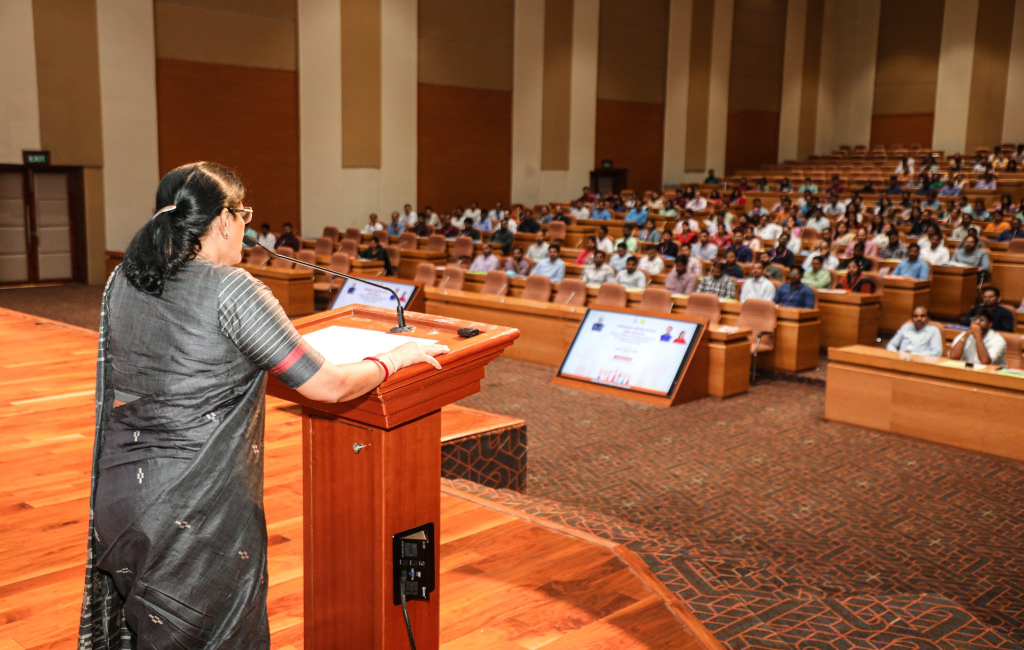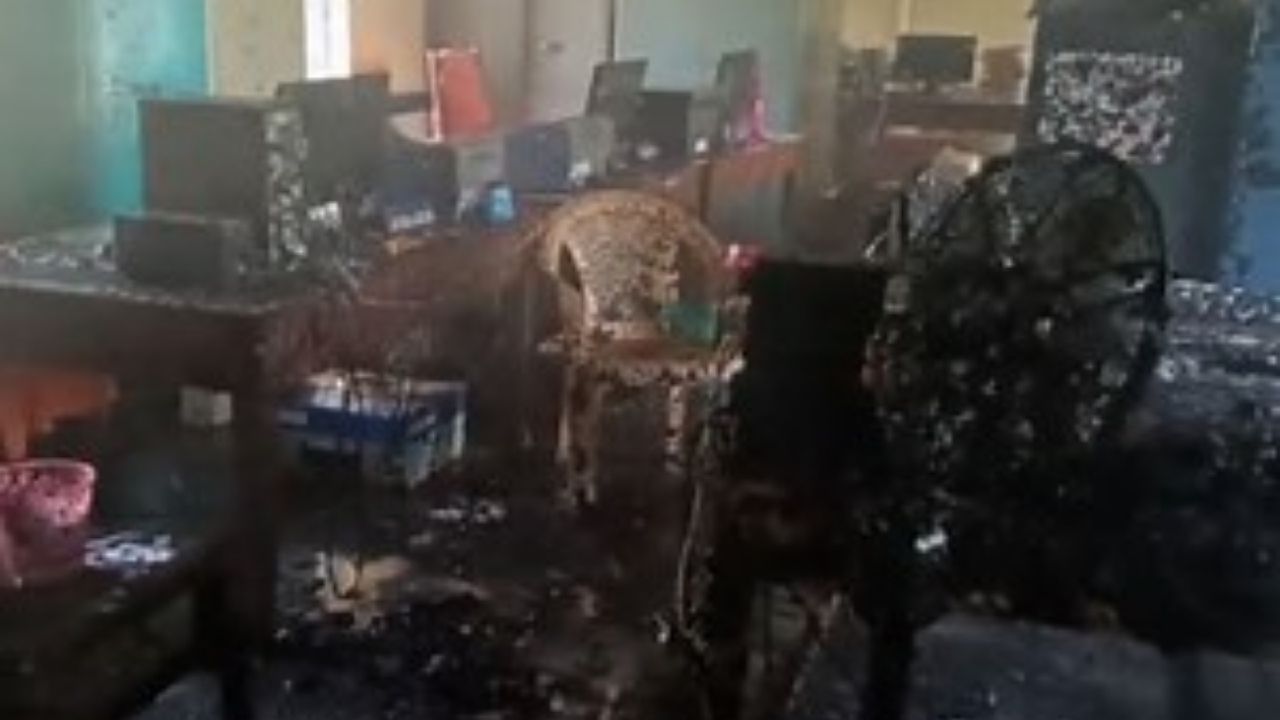In a recent move that has sparked conversation and concern across the educational landscape of Odisha, Deputy Chief Minister Pravati Parida issued a stern warning to all colleges within the state. She made it clear that colleges without Internal Complaints Committees (ICCs) would face severe consequences. This initiative aims to tighten the state’s approach towards ensuring safe educational environments and adhering to the national mandate for the prevention of sexual harassment. In this article, we will break down this important announcement, explain what Internal Complaints Committees (ICCs) are, and explore why these committees are crucial in protecting students and staff.

The Deputy CM’s warning comes in the wake of a deeply tragic incident involving a 20-year-old student from Fakir Mohan Autonomous College in Balasore, who attempted to self-immolate due to alleged sexual harassment by a faculty member. The incident, which resulted in the student’s unfortunate death, has prompted widespread outrage and serious calls for accountability across the state. The fact that this issue occurred in an environment where student safety should have been paramount underscores the importance of the measures now being taken.
Colleges Without ICCs to Face Consequences
| Key Information | Details |
|---|---|
| Who issued the warning? | Odisha Deputy CM Pravati Parida |
| What was the trigger? | A tragic incident of sexual harassment at Fakir Mohan College |
| What does this mean for colleges? | Colleges without ICCs will face penalties, including salary freezes and potential principal suspensions |
| What is an ICC? | Internal Complaints Committee: A body that addresses harassment and discrimination at workplaces and institutions |
| When must colleges comply? | All relevant colleges must upload ICC details by August 1 |
| Where to upload ICC details? | On the SHe-Box portal, managed by the Ministry of Women and Child Development |
| Consequences for non-compliance? | Salary freezes for staff, suspension of non-compliant principals |
| Official Resources | SHe-Box Portal |
The Odisha government’s crackdown on educational institutions that fail to establish Internal Complaints Committees (ICCs) sends a strong message about the importance of ensuring safe, harassment-free environments for students and staff. Through this new directive, the state is emphasizing the need for compliance with the Sexual Harassment of Women at Workplace Act, encouraging educational institutions to be more proactive in creating policies and procedures to address harassment.
For institutions that are lagging behind, this guide should serve as a practical roadmap to help them meet legal requirements, protect their students, and contribute to a more respectful and safe learning environment.
What Are Internal Complaints Committees (ICCs)?
To understand the gravity of the Deputy CM’s statement, it’s essential to know what an Internal Complaints Committee (ICC) is. Under the Sexual Harassment of Women at Workplace Act, 2013, every organization—including colleges—must establish a body to address complaints of sexual harassment. This body is responsible for investigating complaints, ensuring a fair process, and offering support to those involved.

In the context of educational institutions, ICCs play a critical role in maintaining a safe environment where students and staff can thrive without the fear of harassment. These committees are responsible for:
- Handling Complaints: They provide a platform for anyone who feels they have been harassed to come forward and report their issue without fear of retaliation.
- Investigation: After a complaint is filed, the ICC is tasked with investigating the allegations in a fair and unbiased manner.
- Action: If the complaints are found to be valid, appropriate actions are taken against the accused party, which could range from counseling to suspension or termination.
- Support: The committee offers emotional and psychological support to victims throughout the process.
The creation of ICCs ensures that institutions follow a systematic, transparent approach to addressing harassment, providing a fair environment for all.
Why Are ICCs So Important?
ICCs are an essential part of a safe and healthy work environment. Unfortunately, many educational institutions have been slow in complying with the law, leading to incidents where harassment goes unreported or unaddressed. This lapse in compliance has real-world consequences for victims and can lead to situations like the one in Balasore, where an incident escalates tragically.
By reinforcing the importance of ICCs, Odisha is setting an example for other states to follow. The law aims to provide both preventative measures and an effective response system to sexual harassment, ensuring that the victims feel empowered to come forward and that their complaints are handled appropriately.
How Does This New Directive Affect Colleges?
The recent directive issued by the Odisha government mandates that all colleges (including degree colleges, teacher education institutes, and Sanskrit colleges) must upload details of their ICCs onto the SHe-Box portal by August 1, 2025. This move aims to create a transparent system where the Indian government can track compliance across the country. The SHe-Box, managed by the Ministry of Women and Child Development, is a crucial tool for reporting and tracking sexual harassment complaints in educational institutions and workplaces.
Key Requirements:
- Submission of ICC details: Institutions must upload their committee composition, the processes they follow, and contact information for those wishing to report harassment.
- Deadline: Institutions must comply by August 1, 2025. Any institution that fails to comply will face consequences.
- Salaries on Hold: Cuttack administration has made it clear that institutions failing to submit ICC details will have their staff salaries withheld until they meet the requirement. This is a significant move to ensure that accountability is enforced.
Real-Life Examples: The Need for Internal Complaints Committees
To bring home the point, let’s take a look at some real-life situations that underscore the importance of Internal Complaints Committees.
Example 1: Fakir Mohan Autonomous College Tragedy
As mentioned earlier, a 20-year-old student from this college allegedly faced sexual harassment by a faculty member. The tragedy occurred when the student, unable to find a solution to her problem, attempted to self-immolate. Unfortunately, she succumbed to her injuries. If the college had a functioning ICC, it might have been able to step in earlier and prevent such a devastating outcome.
Example 2: Kalinga Institute of Social Sciences (KISS)
Another educational institution in Odisha, the Kalinga Institute of Social Sciences (KISS), was proactive in creating a robust ICC, which helped prevent harassment issues from escalating. Through training and clear procedures, the institution created a culture of openness and zero tolerance for harassment, allowing students to thrive in a secure environment.
Consequences for Colleges Without ICCs
The penalties for non-compliance in Odisha are not taken lightly. The Cuttack administration has gone as far as withholding salaries for staff members in institutions that fail to create and maintain Internal Complaints Committees. Additionally, principals of such institutions face the prospect of suspension.
These measures have raised awareness among educational institutions about the importance of prioritizing student safety and adhering to legal frameworks meant to protect students and staff. It’s a reminder that compliance is not just a legal requirement, but a fundamental step in creating a healthy, respectful environment for everyone in the institution.
How to Set Up an ICC in Your Institution
For institutions that still do not have an ICC in place, here is a simple step-by-step guide to get started:
- Form a Committee:
- Appoint at least three members, including a chairperson, a female representative, and a third member from an external organization working in the area of women’s rights.
- Ensure the members are trained and familiar with the Sexual Harassment of Women at Workplace Act and other related regulations.
- Establish a Reporting System:
- Create clear guidelines for students and staff on how to file complaints. These could be online forms, a designated office within the institution, or both.
- Ensure the process is confidential and easy to follow.
- Implement Training and Awareness Programs:
- Conduct regular workshops and seminars on sexual harassment awareness and rights under the law for both students and staff.
- Promote Zero Tolerance:
- Ensure there is a clear policy of zero tolerance for harassment. Reinforce the message that harassment will not be tolerated under any circumstances.
- Upload ICC Details to SHe-Box:
- Go to the SHe-Box portal and upload your ICC’s details, including the committee’s members, the reporting process, and relevant contact information.
- Monitor and Evaluate:
- Regularly assess the effectiveness of your ICC by gathering feedback and tracking complaints to ensure the system is functioning as intended.
Over 2,200 Applicants Compete for 360 LLB Seats in Odisha’s Premier Law Colleges
Odisha Government Orders Universities and Colleges to Follow IC Norms Within 24 Hours
Sundargarh College Bans ‘Odd Hairstyles’ for Students, Enforces Strict Entry Rules
FAQs
Q1: What is the SHe-Box portal?
The SHe-Box portal is a government-run platform designed to facilitate the filing of sexual harassment complaints at workplaces and educational institutions. It is an essential tool for tracking the status of complaints and ensuring compliance with the Sexual Harassment of Women at Workplace Act, 2013.
Q2: What happens if a college fails to comply?
Colleges that fail to establish an ICC and upload the required details to the SHe-Box portal by the deadline will face penalties, including withholding of staff salaries and suspension of the principal.
Q3: Who can file a complaint with the ICC?
Any student, staff member, or faculty member who believes they have been a victim of harassment can file a complaint with the ICC.





